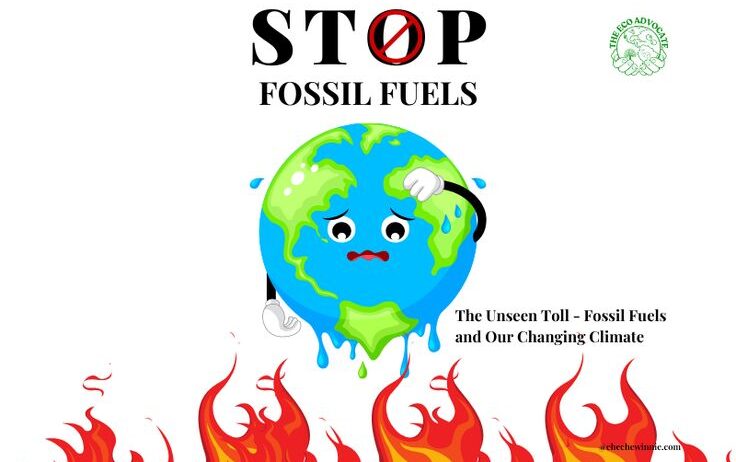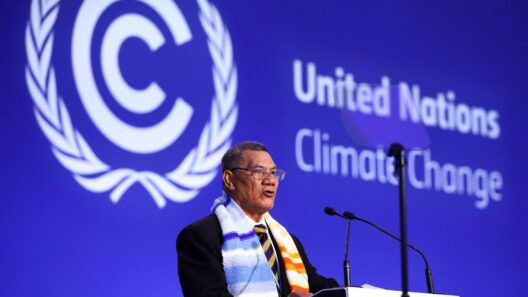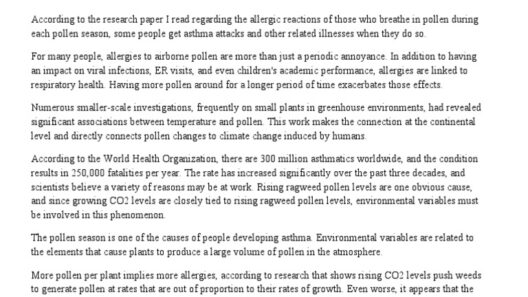Fossil fuels—the lifeblood of modern civilization—act as the double-edged sword of our age. They power our industries, transport our goods, and heat our homes, yet they also hold the devastating capacity to reshape our climate irreversibly. As we delve into the depths of this conundrum, we must explore the intricate dance between consumption and consequence, unveiling the unseen toll that fossil fuels exact on our planet.
The journey begins with the extraction of these carbon-rich resources from the Earth. The very act of mining coal, drilling for oil, or fracking for natural gas is a prelude to the environmental upheaval that follows. Each method leaves scars upon the land. The mountains are denuded, the waters are contaminated, and the air becomes a volatile cocktail of pollutants. This initial phase sets the stage for a broader narrative, one where human activity instigates a slow yet inexorable alteration of the planet’s climate.
Once liberated from the Earth’s embrace, fossil fuels undergo a transformation in their utilization. The combustion of coal, oil, and natural gas releases copious amounts of carbon dioxide (CO2) into the atmosphere. This mechanism is akin to placing a thick blanket over the planet—a blanket that traps heat. As atmospheric concentrations of CO2 rise, this insulating layer exacerbates the greenhouse effect, leading to a warming planet. What was once a series of natural cycles has been thrust into an age of anthropogenic influence, displacing equilibrium with volatility.
Moreover, the concept of “climate tipping points” serves as a dire warning beacon. These thresholds, once crossed, could unleash a cascade of catastrophic consequences—including the melting of polar ice caps and the unleashing of methane from permafrost. These phenomena do not exist in isolation but instead interact in a complex web of ecological interdependencies. The acceleration of warming creates feedback loops that intensify the assimilation of energy in the climate system, making the implications far-reaching and unpredictable.
Picture a once-stable ecosystem transformed into a battleground of climate extremes—a metaphorical landscape where the regularity of seasons gives way to erratic weather patterns: droughts turning to deluges, frigid winters giving rise to stifling summers. Such shifts not only disrupt human life; they ravage biodiversity. Species struggle to adapt to rapidly changing conditions, leading to extinction rates that outpace any rhythm dictated by nature.
Furthermore, the economic ramifications of fossil fuel dependency weave a complex fabric of local and global challenges. Communities built around extraction face an existential dilemma. As fossil fuels become more scrutinized, these economic lifelines morph into liabilities, and the specter of transition looms ominously over workers and families. This transition from reliance on fossil fuels to renewable energy sources demands societal adaptation. It is imperative, then, to forge a pathway that considers both the environmental and social costs of our energy choices.
Similarly, the geopolitics of fossil fuels create a theatre of conflict and cooperation. Nations rich in oil and gas resources wields power that often translates into economic and political aggression. Resource scarcity and competition manifest as tensions and conflicts, illustrating that our reliance on fossil fuels can lead not only to environmental degradation but also to societal unrest. This interconnection underscores the need for a collective vision that embraces sustainability and fosters global solidarity in combating climate chaos.
However, amid the grim outlook, there remains a flicker of hope—innovation and resilience. Technological advancements pave the way for cleaner energy alternatives. Solar, wind, and hydropower offer dynamic solutions that capture the elements themselves, converting sunlight, wind currents, and flowing water into usable energy. These innovations are not merely band-aids on the wound of fossil fuel dependency; they represent a paradigm shift in how we conceive of energy production.
The importance of policy interventions cannot be overstated. Governments play a pivotal role in steering the trajectory of energy consumption through regulation, incentives for renewables, and commitments to international treaties aimed at curbing greenhouse gas emissions. Comprehensive climate policies, like carbon pricing, can effectively internalize the external costs associated with fossil fuel use, making cleaner alternatives more economically viable.
Moreover, grassroots movements stand as vital forces of change. They embody the collective will of a populace that demands accountability and action. Engagement on local, national, and international scales is crucial in galvanizing public opinion and motivating policy reforms. The voices of the disenfranchised, the environmental advocates, and future generations will resonate profoundly in shaping a sustainable trajectory.
In conclusion, the story of fossil fuels is one of paradoxes—offering convenience and conflict, productivity and pollution. As we traverse this complex terrain, recognizing the profound implications of our actions becomes imperative. Every decision, every policy, and every innovation can either lead us further down a path of destruction or steer us toward regeneration and resilience. It is time to look beyond the burn of fossil fuels and embrace the potential for a sustainable future that nurtures both humanity and the planet. This is not merely an environmental challenge; it is a testament to our capability for empathy, foresight, and unity in the face of existential threats.






